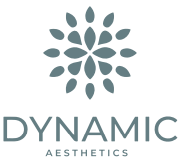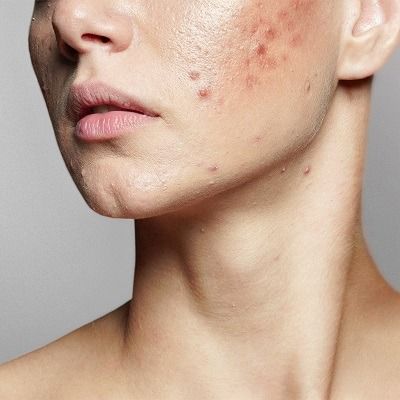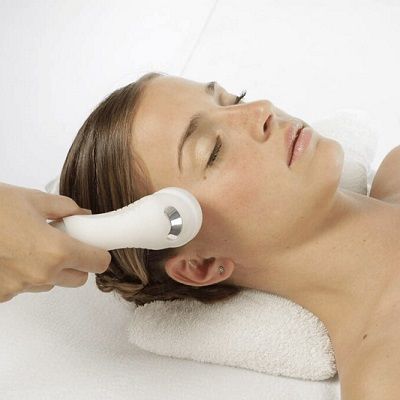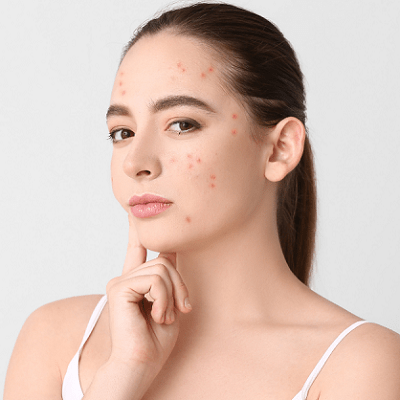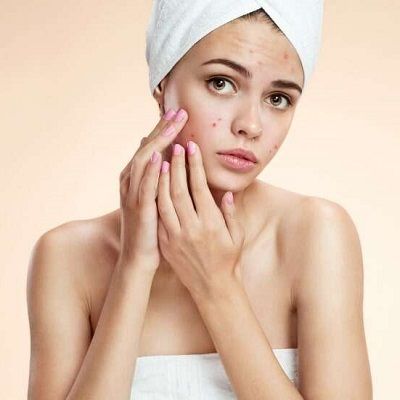
Clear skin is essential for several psychological and cosmetic reasons. The widespread skin ailment of acne might complicate the pursuit of clean skin. It happens when oil, dead skin cells, and germs block hair follicles, causing pimples, blackheads, or whiteheads to develop. Hormonal changes, heredity, inadequate skincare practices, and certain drugs are some of the causes that cause acne to develop. Sometimes, acne can leave scars, which alter the skin’s look and texture even more. Acne Scars can harm the collagen and elastin fibers that keep the skin’s structure and suppleness when they reach the deeper layers of the skin. Scarring may result from uneven collagen synthesis while the skin heals itself. Get your Acne Scars Treatment for Sensitive Skin from our clinic in Dubai.
What is Acne Scar?
Acne lesions that are severe or chronic can leave noticeable imprints or indentations on the skin after they have healed. These scars may develop as a result of inflammatory acne, which includes cysts, nodules, or pustules that extend deeper into the skin layers. The look, texture, and severity of acne scars might vary depending on the person’s skin type, the severity of their acne, and how well they responded to the treatment.
Acne scars can be treated with different procedures like topical medications, chemical peel, micro-needling, and subcision. Moreover, dermal fillers and steroid injections can also help to treat these acne scars.
Treatment:
Depending on the nature and severity of the scars, there are several efficient Scar Removal Dubai. Here are a few treatments for acne scars that are often used:
Chemical Peels:
In chemical peels, the skin is exposed to a chemical solution that exfoliates the outer layers and stimulates cell growth. This promotes the formation of collagen and makes the skin seem younger, which helps to lessen the appearance of acne scars. Deep peels are useful for more severe scarring; superficial or medium-depth peels are helpful for mild to moderate acne scars. A dermatologist will choose the kind and intensity of the peel in accordance with each patient’s demands.
Laser:
By encouraging collagen remodeling and skin resurfacing, laser treatments can successfully heal acne scars. A frequent procedure is fractional laser resurfacing, which employs tiny treatment zones created by fractional lasers to promote collagen formation and minimize the visibility of scars. Redness or vascular discoloration that links to acne scars can be treated using pulsed-dye lasers. A dermatologist or laser expert often administers laser treatments.
Microneedling:
In the course of a process called micro-needling, which is also known as collagen induction therapy. The dermatologist uses small needles to induce regulated micro-injuries in the skin. The texture and look of acne scars improve as a result of this treatment, which also increases collagen formation and the skin’s natural healing response. A derma roller or a tool that resembles a pen can be used to do micro-needling. The finest results could need several sessions.
Dermal Fillers:
By adding volume to the damaged regions, dermal fillers can momentarily enhance the look of depressed acne scars. Fillers composes of hyaluronic acid are more in favor of this. The scar raises to the level of the surrounding skin by the filler injection, giving the area a smoother texture. The outcomes are quick but fleeting, usually lasting a few months to a year.
Subcision:
A dermatologist inserts a needle or cannula beneath the scar during a small surgical operation called a subcision. It helps to dissect the fibrous tissue that is dragging the scar lower. This method promotes the growth of new collagen while assisting in the scar’s release. To improve outcomes, dermatologists frequently couple subcision with other therapies like micro-needling or laser therapy.
Aftercare:
To encourage healing, preserve the skin, and maximize the effects of the treatment, it is crucial to take the right aftercare steps after receiving acne scar therapy. These precautions enhance the healing process, preserve the health of the skin, and reduce potential consequences. Consider these important aftercare measures
- Use lukewarm water and a moderate, non-irritating cleaner to gently wash the treated area. Be careful not to scrape or massage your skin too hard.
- Wear broad-spectrum sunscreen with an SPF of 30 or higher to shield the treated area from the sun. Regularly reapply sunscreen, especially if you are going outside.
- Avoid a hot shower or bath, a sauna, or a steam room since they might irritate the treated skin.
- Avoid rubbing, picking, or scratching the treated area since doing so might delay healing and increase the chance of infection or scarring.
- Use non-comedogenic, fragrance-free moisturizers to keep the skin hydrated prevent dryness or peeling, and retain its moisture.
- Delay to use makeup or other cosmetics on the treated region.
- Attend regular follow-up visits to track treatment progress and resolve any issues or queries.
Benefits:
Treatments for acne scars can have a number of advantages, including boosting self-esteem and promoting smoother, more even-looking skin. Some key benefits are
- Scarring is less noticeable and improves skin’s smoothness and suppleness
- Increase confidence and self-worth.
- Hyperpigmentation or discolouration to a minimum.
- Encourages Collagen synthesis filling up hollow or atrophic scars.
- Enhances skin quality overall, treating wrinkles, fine lines, and uneven texture.
- Easier and more smooth application of makeup.
- Possibility of bettering relationships with others and career prospects.
Book A Consultation!
Dynamic clinic in Dubai offers Acne Scars Treatment for Sensitive Skin. we have well-qualified and experienced doctors. So if you want to book an appointment. Fill out the consultation form as soon as possible.
